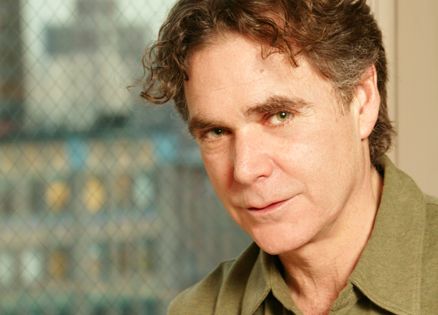In my book published by Guideposts last year, The Promise of Hope: How True Stories of Hope and Inspiration Saved My Life and How They Can Transform Yours, I shared inspiring stories of people who had overcome tremendous obstacles to do great things using faith, prayer and positive thinking.
After considerable hesitation and soul searching, I also wove through the narrative my own personal story of battling addiction and depression, despair and spiritual isolation. It was the story of how, by some sort of strange miracle, I landed at Guideposts. I’m glad I told my story because the response has been overwhelmingly positive and supportive.
But not all of it. Last week I blogged about Texas Rangers star Josh Hamilton and his relapse with alcohol. People posted some interesting replies, but one woman took me to task. Why, she wanted to know, in my book did I break my anonymity? It was wrong, she said; I should know better. I had violated the 11th tradition.
Yes, I had, and she was by no means the first to call me on it.
For those of you who don’t know 12-step recovery program jargon, breaking your anonymity means saying you belong to a specific 12-step group. In my case it is A.A., Alcoholics Anonymous (oops, there I go again).
The 11th tradition of A.A. states, “We need always maintain our personal anonymity at the level of press, radio and films.”
Obviously there is plenty of room for interpretation there. The traditions were published more than 60 years ago and certainly couldn’t have conceived of the Internet or social media. The founders were visionaries but they were not clairvoyant. The 11th was an effort to protect A.A. from bad publicity, especially when public people relapsed publicly. It also created safety for those seeking help in a time when alcoholism was severely stigmatized as a personal and moral failing.
But that’s not really the point. The 11th tradition is spiritual in nature. We are all gloriously equalized by our disease and our desire to stop drinking. Whether you’re the doorman or you live in the penthouse, in an A.A. room you are all equal and equally embraced in the fellowship. It’s all just first names.
You never actually tell anyone outside the program that you are in A.A. Generally it’s permissible to say that you belong to a 12-step group, or are in recovery, or are staying sober a day at a time and go to meetings and have a sponsor and believe in a Higher Power. This is code, of course, but it technically honors the tradition. Still, almost everyone knows that you’re in A.A. You’re not fooling anybody.
For years and years I did not disclose to the Guideposts audience that I was even in recovery, let alone A.A. Then came the book. I tried to do the semantic tap dance that we A.A.s know so well. It didn’t work. Really, it didn’t.
To use that code all the way through the book felt truly bizarre and disingenuous, like I was in the recovery closet or something. One early reader of the manuscript who was not in A.A. and was a very astute editor said that my patent omission made A.A. seem like some sort of secret cult. That comment as much as anything got me to change my treatment of the subject. And of course I would never disclose the identity of any other member of the fellowship.
But I really don’t think I could have told my own story honestly, and getting sober is all about getting honest. A.A. teaches us that it is a program of suggestions, not rules, not dogma, not dos and don’ts. As revered as the traditions are, they are suggestions. I took that to heart. In baring my soul in a book, it felt dishonest not saying the patently obvious: I’m in A.A.
If you want to pillory me, here’s your chance. Post below.






